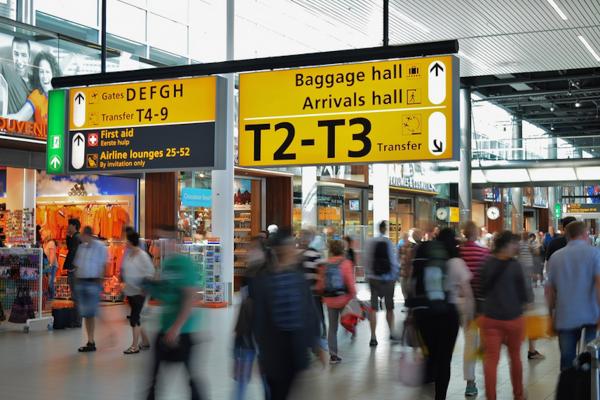Surprisingly, student radio has been the single most exhausting, time-intensive thing I have done in Germany. It has demanded more of me than any single class and more than my part-time student position at a start-up.
This might seem absurd. And, in my opinion, it is. German universities—or at least my university Ludwig-Maximilians-University (LMU)— don’t offer much in the way of student associations, extracurricular activities and sports teams. But when they do, it’s a huge commitment.
Last year, I was a part of my university’s student radio back in Canada. It had been an exciting and relatively laid-back experience. You could put in as much effort as you wanted really. You could create your own music or talk show and say pretty much whatever you wanted as long as it didn’t include too many curse words. Of course, there was also the possibility of taking it quite seriously and organizing interviews and guest speakers, preparing intelligent and well-spoken content. But you didn’t have to. No student oversaw all the radio shows and curated all the music. No student acted as editor-in-chief of all content played on air.
Boy, was I in for a surprise when I found out I had to spend every Tuesday from 8 a.m. to 6 p.m. “working” (unpaid) for the German student radio. Additionally, I had to attend a separate pitch meeting every Monday evening as part of the music team that usually lasted long into the night. I came in every Tuesday, where I responded to my student “boss” and had to do a whole bunch of tasks all day. To top it all off, this was all in German, which was a struggle for me.
This is obviously great radio experience. But to be quite frank, it was ruining my life. I was constantly exhausted and behind on all my classes. My social life was put to a standstill.
All I could think was: “This would never happen in Canada.”
I quit after a month. That was also extremely stressful. It legitimately felt like I was quitting a job.
In contrast to Germany, student initiatives are an important and fun part of student life in North America, albeit a pretty relaxed one.
A lighter workload?
To be fair, the only reason this demanding student activity was even feasible is because of German students' class schedules and workload. A key reason why I’ve been able to work part-time, do student radio and have a social life is because of my university experience here in Munich, which provides a lot more freedom than my Canadian university.
Last semester, I took several block courses which seriously opened up my schedule. The mentality in German universities is also very different. At my home university, I am constantly overloaded with weekly readings and assignments. Here, though I do have readings, there are far fewer examinations (usually, only one or two big ones during the semester). This makes time management a lot easier and therefore, extracurriculars and work more manageable.
In my opinion, the workload at German universities is fairly light. In fact, at the beginning of last semester I was desperately bored. I was in advance on all my readings and assignments and I still had nothing to do. I wasn't feeling academically challenged.
I was not alone in thinking this. I talked with fellow exchange student from Colombia, Nicolas Vergara, about his expectations of Germany’s education system and the reality he experienced. He studies physics and electronic engineering and spent one semester at the Technical University of Munich (TUM).
Nicolas went on exchange because he want to know if there was a difference between studying in Colombia and Europe or North America. He says physicists in Colombia are not taken very seriously.
“Science is not very important in Latin America," he says. "Germany has a lot of really famous physicists. This is the place where some of my heroes have studied, like Max Planck and Heisenberg. I was expecting the academic environment to be very different here.”
But Nicolas was in for a surprise: “I was expecting this university to be harder and that we’d learn more deeply about theoretical physics. That’s not the case. I don’t feel I have a heavy workload compared to the load I have at my home university," he says, adding that he doesn't feel the lectures or classes are harder or more detailed.
Learning in the field
I wasn’t particularly impressed until I realized most Germans have part-time internships in their field of study during the semester. The more I talked to local students, the more I realized that they were in fact extremely busy. Here there are endless opportunities for professional experience as a student. But this also means that students don’t invest themselves in their classes the same way we do in North America.
Nicolas also noticed this in his university’s physics department.
“In Colombia if you study physics it’s because you really like it because you’re not in it to make money," he says. "A lot of people tell me they just want to pass the class; that’s all that matters. For me, that was shocking.”
In general, being a German university student feels a lot more manageable. The whole system is more lenient and goes at a slower pace. And you don’t feel like you’re going to have a mental breakdown at the end of each semester.
This is especially great if you’re an international student with a whole set of other worries on your mind (such as building a social network and adapting to a new culture). There is, in fact, a huge international population at both of Munich’s universities (TUM and LMU).
As Nicolas told me, “One of the first things I found really interesting was the large amount of international people here in Munich. In my lectures maybe 60-70 per cent of people are from other countries that are not Germany.”
At the end of the day going on exchange is also about discovering new people and cultures, and not burying your head in books the whole time.
Add this article to your reading list




